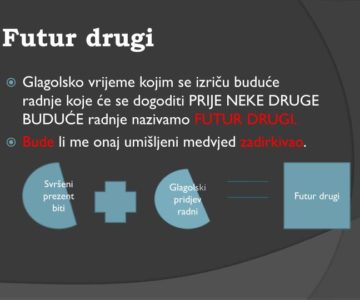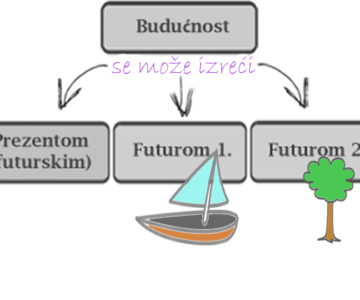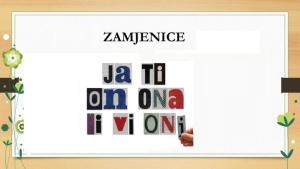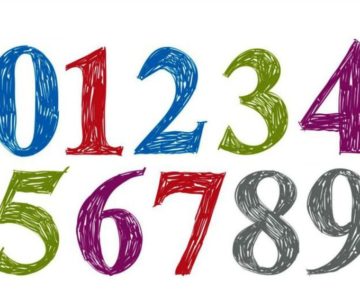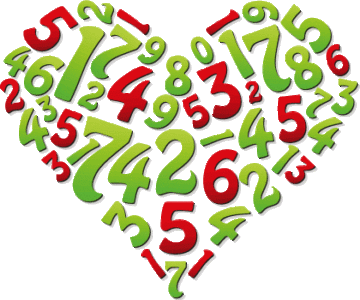Past tense (perfekat)
I fill in the correct forms of the past tense of the verbs given in parentheses: Da li ___________________ (vi, putovati) nekada tamo? On (biti) ________________ kod ljekara juče. Da li je i ona___________________(vidjeti) ljekara? Oni ____________________(željeti) da idu u posjetu? On ____________________ (posjetiti) taj grad prošle godine. Taj gospodin _____________ (tražiti) _______________ da radi […]



